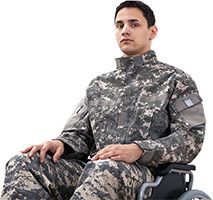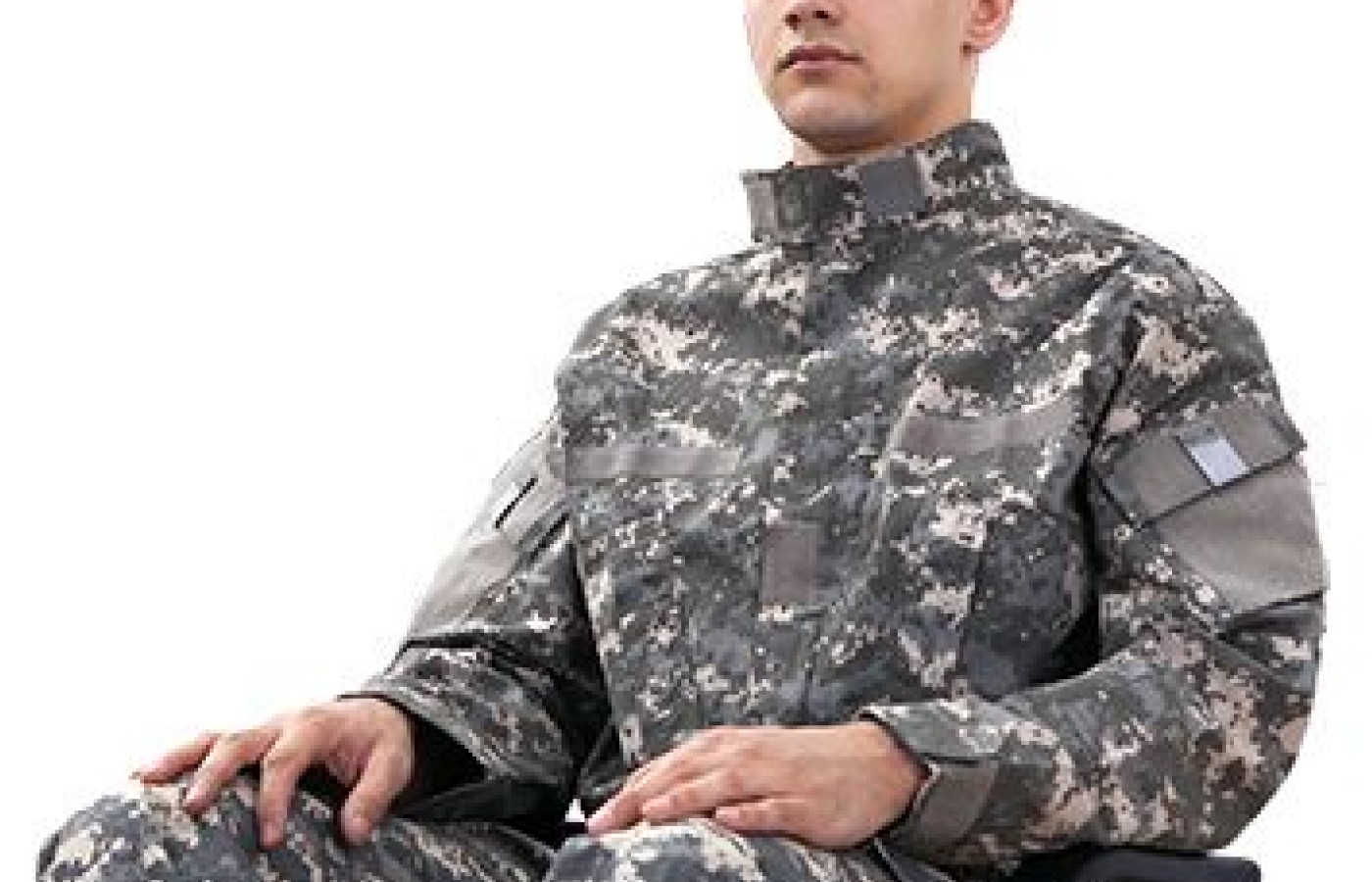The most important relationship I seek to nurture in the treatment room is the one a patient has with their own body. We live in a culture that teaches us to override pain, defer to outside authority, and push through discomfort. Patients often arrive hoping I can “fix” them, but the truth is, we can’t do the work for them. We can offer guidance, insight and support, but healing requires their full participation.
Midwest College of Oriental Medicine Cares for Veterans
The Midwest College of Oriental Medicine is reaching out to veterans of all ages. The college's student clinic in Chicago began treating veterans with Post Traumatic Stress (PTS) in 2007. The clinic was piloted by a group of students led by a third year intern who was a veteran herself. She knew what acupuncture could do personally and wanted to help those she knew could benefit from treatment. These few interns had taken the national NADA training offered by a faculty member at the college. Their intention was to give back to those who have given so much for our country and to share their idea for a Community Style clinic at the college. We began our specialty clinic and promoted it by word of mouth and fliers posted around VFW halls in Chicago. The veterans and their family members were invited to come to the clinic at no cost for NADA auricular points in a community style setting.
A Slow Start
This specialty clinic started out slowly, mostly because the patients were not familiar with acupuncture and skeptical that it could actually help with stress and anxiety from PTS. There were three patients on the first day, ages 68, 42, and 28, who collectively spanned more than forty years of wars. What they all had in common was a desire to take control of their lives, have peace of mind, and most importantly to get a good night's sleep without jumping at loud sounds. These three patients were needled while sitting at a table. Within ten minutes, they were talking softly about their own experiences. They left the clinic that day tentatively smiling and asking if they could come again that same week. When they returned, each of them brought a friend and once again the same thing occurred with the talking, sharing, and leaving with a smile and a request that they be allowed to come again. Within weeks, there were 30 people coming to the clinic once or twice a week. Within a few months, the number of patients grew to ten and then fifteen patients each hour. The majority of the patients never missed their weekly treatments. Not only did this style of treatment assist the veterans, but the student interns also saw the power of the community style encounter.

The interns learned a different type of interaction by working with the vets in this setting compared to the one-on-one patient treatments in a private treatment room. These heroes, while sitting at a round table, tell the interns time and again how grateful they are for the compassion and care they receive, how relaxed they feel when leaving the clinic, and most importantly, how they have been able to get a good night's sleep. The four interns at this time said this was their most gratifying time in clinic.
One of the original interns who helped develop this clinic began calling this type of treatment "acu wellness." This phrase was coined from patient comments about how they felt after receiving this type of care — that they feel well again. The patients now ask for their acu wellness treatment and tell fellow vets to ask for this when referring to the clinic. Midwest's campus-based clinic has had a profound effect by eliciting great compassion by all who supervise and intern there.
Over the past eight years, the interns have performed more than 20,000 "acu wellness" treatments to veterans with an extremely high patient retention rate. These patients have made many comments but the most profound came from a Vietnam veteran who, after suffering for almost fifty years said, "you have made me feel alive again." Another veteran who returned from Iraq last year said his eight-year-old daughter no longer shies away from him and says that now he is warm and cuddly. When he first began treatment, he said his family was frightened of his moods and that he wanted to know if acupuncture would help this. Within three weeks, with two visits per week he said, "I can smile and hug my family and know that I am becoming whole again."
A Growing Influence
The success of this specialty clinic and the development of patient trust have been further demonstrated by veterans who seek treatment in the clinic for healthcare problems other than PTS. One patient told his intern that the ear treatments he was receiving help with his anxiety and insomnia, but were not helping much with pain he was experiencing. This particular patient had lost his right leg above the knee and was having severe phantom pain. After obtaining permission from a supervisor to assist the veteran with this condition, the intern needled the patient's left leg. The patient said he felt immediate relief when the needles were placed in his leg. After four weeks of twice weekly treatments, he said the pain was completely gone. As a result of word of mouth from this patient, the clinic has treated several vets who have had amputated limbs. Each one has had a very similar reaction to this very effective treatment.
The student clinic at Midwest uses traditional acupuncture treatments, Tui Na, and herbal therapy for treating the vets with other healthcare complaints and encourages them to include exercises such as Qi Gong or Tai Chi, and to follow other lifestyle and TCM nutritional recommendations. These additions and modifications are great tools for combating the symptoms of PTS and other problems the veterans have. These patients are realizing they do not necessarily have to live the rest of their lives managed by prescription medication now that they have been provided with the tools to assist them in reclaiming their lives and becoming more empowered.
Because of the clinic's high success rate and patient demand, the college has sponsored several NADA trainings, the last one this past summer. The interns from this group want to go out into the community and talk about the clinic. Midwest now has many alumni who provide this service in their private clinics and who reach out to their communities to treat our veterans.
In view of its historical diagnosis and treatment processes, it seems only natural that TCM has become a leading area of interest in tackling PTS. The need for expanding treatment programs is great. It is hoped that the incorporation and success of acupuncture into military facilities and treatment programs will continue to grow and be complemented by more training and hiring of acupuncturists. Midwest College has provided these services to veterans for little or no cost for several years. With clinic supervisors engaged in outreach, coupled with some of the patients talking to their physicians at the VA Hospital about the clinic, veterans of northern Illinois are having greater access to these services. A VA physician even visited the clinic to find out more about the treatments the veterans were receiving. This physician believes in patient centered care and encourages his patients to continue with their acupuncture treatments. This has helped to increase awareness in the VA hospital about the benefits of TCM treatments for veterans. The heightened awareness by the hospital has, in turn, prompted more patients to seek treatment at the clinic for PTS. Midwest is proud to be a part of the trend toward the greater acceptance by the conventional medical world of the benefits of AOM treatments for our veterans.



